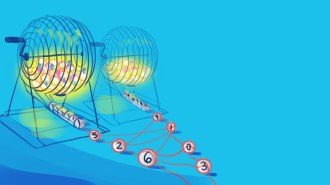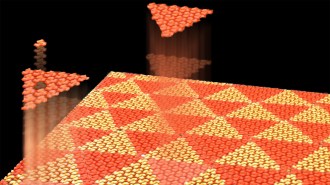Potato chips: A symptom of the U.S. R&D problem
U.S. competitiveness remains in peril even as other nations gear up to steam ahead
Last year, U.S. consumers spent $7.1 billion on potato chips — $2 billion more than the federal government’s total 2009 investment on energy research and development. There’s something wrong, here, when Americans are more willing to empty their wallets for the junk food that will swell their waistlines than for investments in the engine driving the creation of jobs, economic growth and national security.
The potato chip illustration is but one disturbing factoid contained in a September 23 report issued by the National Academies: “Rising Above the Gathering Storm, Revisited.” Here are some other trend indicators it identified:
– last year, more than half of U.S. patents went to foreign companies; six of the top 10 companies receiving those U.S. patents were foreign
– as of 2003, 69 percent of American fifth through eighth graders learned math from a teacher lacking a degree or certificate in that field
– U.S. children and adolescents average 7.5 hours a day playing video games, sitting at computers or watching TV — “often multi-tasking”
– among the Organization for Economic Cooperation and Development’s 33 member nations — which include most of the world’s leading industrial countries (although not China nor India) — U.S. workers led the pack in the proportion having high school diplomas. But this was true only for its oldest workers. Among 25 to 34 years olds, America’s workforce has fallen to eleventh place within the OECD — from first — in terms of high-school graduates.
– the federal government’s annual research investment in engineering, math and the physical sciences “is now equal to the increase in United States healthcare costs every nine weeks”
– 49 percent of U.S. adults don’t know how long it takes the Earth to revolve around the sun, according to the 2010 Science and Engineering Indicators report, issued by the National Science Board
– more U.S. college grads take home degrees in the visual and performing arts than in engineering
– China is on the rise: It now ranks second in global publication of biomedical research papers; two Chinese universities are the leading suppliers of students earning U.S. PhD’s; China trails only the United States in its number of workers engaged in R&D; eight of the 10 global companies with the biggest R&D war chests set up research facilities in China, India or both; a European analysis out last year reported China has surpassed America as the leading high-tech exporter; an American company opened the largest private solar R&D facility — in China; and 83 percent of Wal-Mart’s suppliers are Chinese
– Taiwan’s computer manufacturer Hon Hai Precision Industry employs more people than does Apple, Dell, Microsoft, Intel and Sony combined
None of these trends bodes well for the health of the American economy or quality of life. In aggregate, they paint a depressing picture of a nation that has rested on its innovative and technical laurels way too long. That’s not only my opinion but also that of a blue-ribbon panel of research leaders who just authored the new report from which these trends were plucked.
Five years ago, Rising Above the Gathering Storm — a report by the same group, indeed, most of the same authors — identified risks to American competitiveness and laid out a laundry list of recommendations to address them. These called for boosting investments in education, in research and in industrial infrastructure. While well received, the recommendations didn’t initially trigger much change.
They did, however, launch the 2007 America COMPETES Act, a law to spur innovation through research and development, improved science and engineering education, and analyses of tax policies and other barriers to U.S. economic and industrial competitiveness.
Yet, “In what perhaps might best be described as a system failure, virtually no funds to implement [the earlier report’s] recommendations” were initially budgeted by Congress. They eventually materialized, but only after the catastrophic economic downturn spurred the Stimulus package. Suddenly, all sorts of previously planned investments were pushed through Congress as part of a two-year program to deal with the economic crisis. That funding program is slated to soon expire.
In the new Gathering Storm sequel, National Medal of Technology winner Norman Augustine (the former CEO of Lockheed Martin and a former Undersecretary of the Army) and his coauthors urge Congress and its constituents not to be penny wise and pound foolish. To sustain the progress that has begun, the America COMPETES Act should be reauthorized, they argue, and some organization established to “institutionalize” oversight and funding of the original Gathering Storm recommendations – or programs to achieve the same aims.
It won’t come cheap, they acknowledge. But if we all laid off some discretionary purchases, like a third big-screen TV or outfitting each kid with a new pair of designer sneakers — we might just find the cash to finance investments in our nation’s economic health. Ones that pay dividends in terms of more and better jobs. Ones that finance developments that bring down the cost of health care at the same time they improve the quality of medicine. Ones that ensure more Americans can read and count and save for rainy days.
Each of us might even free up a few extra bucks for the cause by cutting back on junk food. After all, don’t you find it a bit embarrassing to learn that among electronics-savvy U.S. consumers, potato chips still trump tech?







